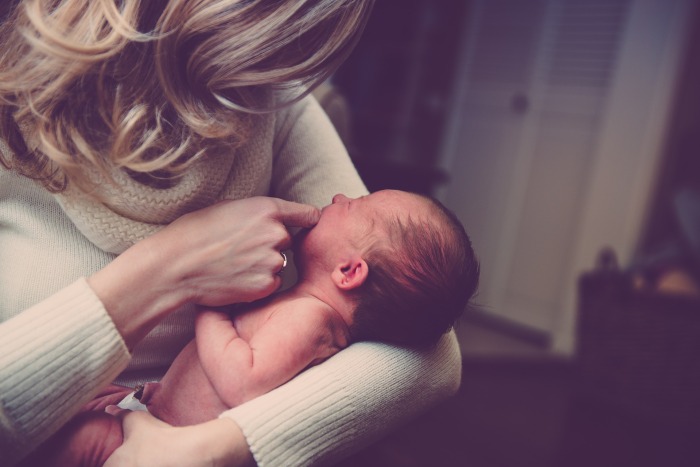
I’m here to talk about something that isn’t often discussed.
Pain after pregnancy.
We’ve all heard of pain during pregnancy; the long sleepless nights, the back pain, sciatica, being unable to touch your toes as your belly stretches to accommodate a small human, the list goes on.
Then your baby is born and there’s a huge relief. No more back pain, you can lie on your tummy again, and generally feel better right?
Wrong.
Postpartum is a time in our society that is often neglected and forgotten. Often moms are spending a majority of their maternity leave alone and solely caring for their baby until their partner returns home in the evening. Days blur into weeks of monotonous tasks that are repeated over and over again. Tasks like changing diapers. Carrying diaper bags. Carrying car seats. Carrying a baby. Packing and unpacking strollers into the car. Never ending laundry. And don’t forget, endless hours of feeding your baby. Being a mom is literally a workout. Not to mention most parents are fighting against sleep deprivation.
What’s Normal
When you think about the physical tasks that caring for a baby involves, there are some common denominators. Often times this requires upper neck and shoulder strength, as well as arm strength. Feeding a baby means holding them, as well as looking down. Diaper changing, using strollers, cribs, and car seat carriers also require this. Baby’s also continue to grow and get heavier, adding more weight and strain to the neck, back, and arms. These tasks are unavoidable. And it’s normal that any repetitive tasks will cause muscle strain and soreness.
Here’s what I usually see;
– Upper neck and back pain from feeding baby
– Sore arms from carrying and holding baby
– Tension headaches
– Possible numbness/tingling in hands or fingers during sleep or when raising arms
– Soreness on the dominant side/low back due to carrying baby or car seat carrier
I think that massage therapy in the first year postpartum is especially important to help keep your body functioning well. It can decrease the soreness from these repetitive actions and help you to stay moving well. It also offers a time of rest where moms can be cared for and not have to worry about doing anything, which can be really hard to get when you have a baby at home. We can also offer tips and remedial exercises to help decrease pain and keep you feeling better.
So yes, if you are feeling some of this pain and discomfort, it goes with being a parent. However, increasing your self care and working with a massage therapist can help. Just because you are in pain or sore doesn’t mean that you can’t take steps towards feeling better.
Pain that isn’t normal
Okay, let’s now discuss pain and symptoms that aren’t normal, and that you may need to be more concerned about. Many of these have to do with healing after having a baby, and occur early on in the weeks following the birth of your baby.
-Severe headache, nausea and vomiting, sudden shortness of breath, abdominal pain under the right ribs, can all be signs of postpartum preeclampsia. That’s right; though rare, preeclampsia can occur in women after their baby has been born. This is most common 48-72 hours after birth but can also have a later onset within a month of delivery. So if you are having these symptoms seek medical help right away, they are not normal!
-Breast tenderness and/or heat, wedge shaped pattern of skin redness, continuous pain or burning while breastfeeding, breast lump or thickening tissue, may also be accompanied by a fever. These are all signs of mastitis, also known as a blocked milk duct. While mastitis can be common, it is not normal pain and needs to be treated because you can develop a fever if left untreated. Talk to your care provider if you suspect it for ways to clear it up and to prevent infection.
– Swollen uterus, paleness, chills, feeling ill, headache, discomfort, and fever can be signs of a uterine infection after birth which can develop 1-3 days after birth. Seek medical help immediately if you are having any of these symptoms!
– Urinary incontinence, leaking while sneezing, coughing, or during vigorous activity. Many women will experience some urinary incontinence after giving birth, regardless if you gave birth vaginally or through a cesarean. While it can be normal to experience while healing, urinary incontinence should not last long. A pelvic floor physiotherapist can treat urinary incontinence and get your pelvic floor strong again.
-Pelvic floor pain that persists after healing. Pelvic floor physiotherapists can help you resolve this so you can be out of pain sooner.